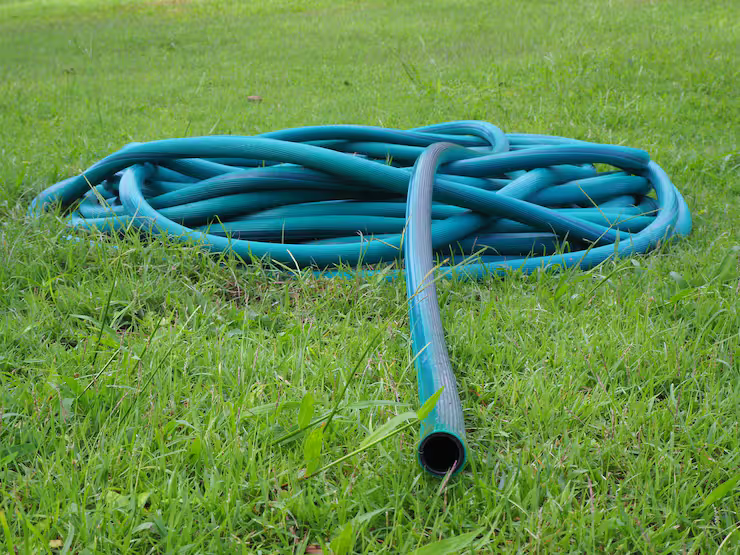The durability of hose pipes matters because they often function under pressure, exposure to sunlight, extreme weather, and contact with chemicals. Over time, innovations in materials like reinforced rubber, PVC, and hybrid polymers have created hose pipes that are lighter, stronger, and more resistant to wear and tear.

Importance
Hose pipes play a vital role in both daily life and industrial applications. Their importance can be seen in the following ways:
-
Household Use: Watering gardens, washing vehicles, or connecting to water tanks.
-
Industrial Applications: Used in factories for transporting liquids and gases safely.
-
Construction: Essential for supplying water, cement mixtures, or compressed air.
-
Agriculture: Irrigation systems rely heavily on durable hose pipes.
-
Safety: Fire hoses provide critical emergency water supply during firefighting operations.
Without strong and reliable hose pipes, efficiency and safety in many of these areas would be compromised.
Recent Updates
Over the past year (2024–2025), the hose pipe industry has seen several developments:
-
Eco-friendly materials: Growing demand for recyclable and non-toxic hose materials.
-
Smart irrigation integration: Hose pipes connected with sensors to automate watering.
-
High-pressure resistant hoses: Improved designs for industries like oil, gas, and mining.
-
Lightweight designs: Hybrid polymer hoses that are easier to carry while remaining durable.
-
Global demand rise: Increased construction and agricultural projects are fueling hose pipe demand, especially in developing nations.
This trend shows how hose pipes are evolving from simple tools into advanced, sustainable products suitable for modern needs.
Laws or Policies
Regulations around hose pipes vary depending on their use:
-
Safety Standards: Fire hoses must comply with national fire safety standards, such as NFPA standards in the U.S. or BIS norms in India.
-
Industrial Standards: Hoses carrying chemicals or gases often require compliance with ISO or ASTM guidelines to ensure safety and durability.
-
Environmental Policies: Governments are encouraging the use of non-toxic, lead-free materials in hoses used for drinking water or irrigation.
-
Workplace Safety Laws: Occupational safety authorities (like OSHA in the U.S.) require proper hose maintenance and inspection in industrial workplaces.
These policies ensure that hose pipes meet safety and quality requirements for their intended applications.
Tools and Resources
A variety of tools and resources can help businesses and individuals select and maintain hose pipes effectively:
-
Online Hose Size Calculators – Tools for determining the correct hose diameter for flow requirements.
-
Industry Standards Websites – ISO, ASTM, and BIS portals for compliance references.
-
Maintenance Apps – Applications that track industrial equipment, including hose inspection schedules.
-
Retail Platforms – Websites such as Grainger, IndiaMART, or Home Depot provide specifications for comparison.
-
Agricultural Tools – Irrigation design software that integrates hose pipe capacity and flow planning.
By using these tools, consumers and industries can ensure they choose the right hose pipe for their needs while complying with regulations.
Frequently Asked Questions (FAQs)
Q1: What is the difference between PVC and rubber hose pipes?
PVC hoses are lightweight, affordable, and suitable for home use, while rubber hoses are more durable, flexible, and ideal for industrial or heavy-duty applications.
Q2: How long does a durable hose pipe last?
The lifespan varies by material and usage. On average, a high-quality hose pipe can last 5–10 years if properly maintained.
Q3: Are hose pipes safe for drinking water?
Yes, but only if they are labeled as food-grade or drinking-water safe. Regular garden hoses may contain harmful chemicals and are not suitable for potable water.
Q4: What should I check before buying a hose pipe?
Check the material, diameter, pressure rating, length, and whether it meets safety certifications.
Q5: Can hose pipes handle hot water or chemicals?
Certain hose pipes are designed for high temperatures and chemical resistance, but users should always verify the specifications before use.
Final Thoughts
Hose pipes may seem like simple tools, but their role in household convenience and industrial safety makes them indispensable. From watering gardens to supporting heavy construction projects and emergency services, their versatility is unmatched.
As technology advances, durable hose pipes are becoming lighter, more eco-friendly, and smarter, meeting both environmental and industrial needs. By understanding regulations, recent innovations, and available resources, businesses and individuals can make informed choices that ensure safety, efficiency, and long-term performance.





